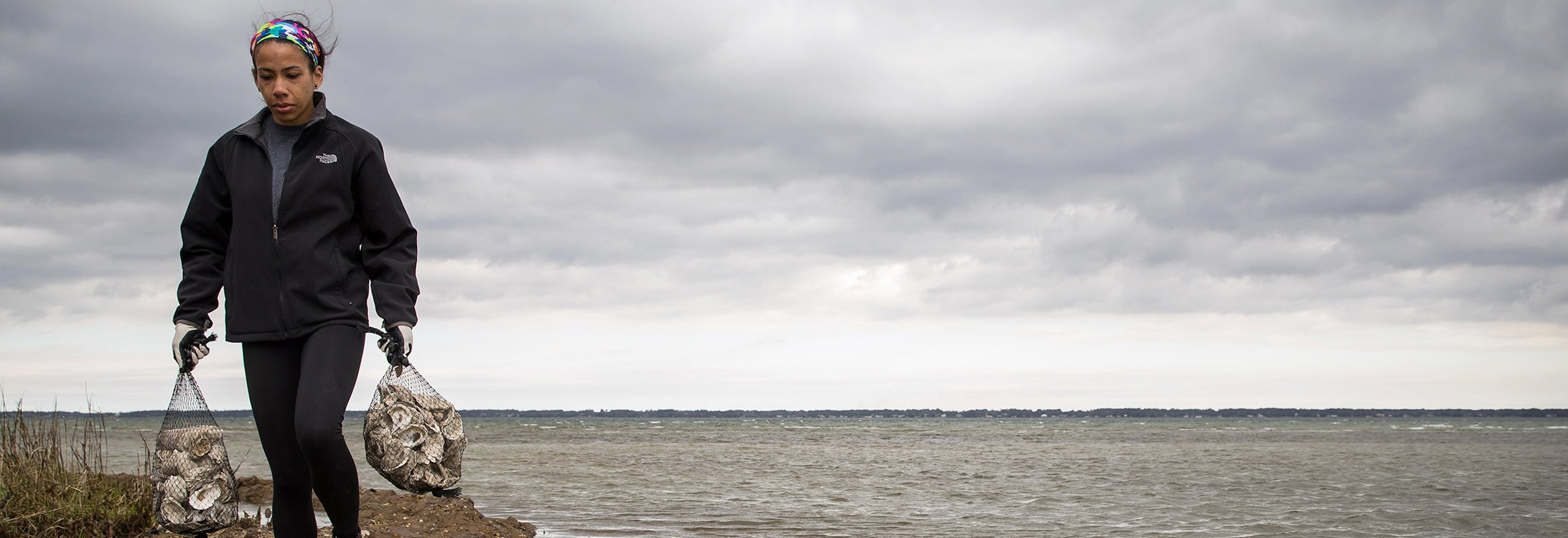People
Core Advisors
Dr. Beth Bee
Director, Environmental Studies
Associate Professor, Geography, Planning & Environment
Dr. Bee is a human-environment geographer in the Department of Geography, Planning, and Environment and Director of the Environmental Studies concentration. Her research integrates feminist theories of knowledge and power with political ecology and environmental justice frameworks to enrich our understanding of the multi-scalar social processes that shape the interactions between climate change, social equity, and rural livelihoods. Utilizing qualitative ethnographic and participatory methods, she explores how differently situated access to resources contributes to the production and exchange of knowledge regarding ecological processes and changes that directly affect local communities and livelihoods. Such questions are especially crucial as climate change and associated policies raise new challenges in these communities that are dependent upon agricultural and environmental rhythms for their well-being. You can find out more details about her current research, student opportunities, and teaching interests by visiting her personal website.
The Blakeslee lab emphasizes marine and estuarine conservation biology and includes a diverse research program involving biodiversity, population genetics, parasite ecology, and biogeography—as well as the unique and integrative insight that can be gained from studying biological invasions. Recently, biological invasions have become recognized as a major contributor to the global (and often disjunct) distributions of many marine and estuarine species as a result of human transport mechanisms. Invasion research is therefore important not only from a conservation perspective but can provide theoretical and practical understanding of population and community level influences of novel species, and can also serve as an important teaching tool for students and the general public. Biological invasions are a major part of human-induced global change, including population, community, and ecosystem-level shifts in marine biota, genetics, and the environment.
We examine many integrative aspects of marine and estuarine invasions, focusing in four major areas: (1) global distribution patterns, biogeography, and conservation biology of free-living and parasite species, (2) invasion histories and vectors, (3) population genetics, population ecology, and evolutionary ecology in native and non-native populations, and (4) biodiversity, community ecology, and host-parasite interactions of native and non-native organisms, including host behavior, physiology, and genetics.
Dr. Feder is an Associate Professor of Literature and Environment in English and teaches classes on a wide range of subjects, including the environmental arts and humanities, ecocriticism and ecological thought, critical theory, and feminist theory/intersectional studies. She has published numerous articles, essays, and interviews, and three books: Ecocriticism and the Idea of Culture (Routledge 2014/2016), Close Reading the Anthropocene (Routledge 2021) and You Are the River (NCMA 2021).
Dr. Cindy Grace-McCaskey
Assistant Professor, Anthropology
Research Associate, Coastal Studies Institute
I am a cultural anthropologist with a focus on applied environmental anthropology. I hold a joint position between the Coastal Studies Institute (CSI) and the Department of Anthropology at East Carolina University. I received a M.A. in Marine Affairs and Policy from the Rosenstiel School of Marine and Atmospheric Science at the University of Miami in 2006, and a Ph.D. in Applied Anthropology from the University of South Florida in 2012. My research interests include political ecology, marine resource management, traditional ecological knowledge, social-ecological systems, and cooperative resource management and institutions.
My dissertation research included extensive ethnographic fieldwork utilizing a political ecology approach to examine the participation of marine resource users in fisheries management in St. Croix, U.S. Virgin Islands. After completing my dissertation fieldwork, I moved to Hawai`i to conduct applied research for NOAA Fisheries and the University of Hawai`i. During my five years in that position, I worked with fishing communities throughout the U.S. Western Pacific region, including Hawai`i, American Samoa, Guam, and the Commonwealth of the Northern Mariana Islands. I joined the Department of Anthropology and ICS faculty in January 2016, and am eager to continue examining marine resource management issues in the Caribbean, Western Pacific, and locally in North Carolina.
Dr. Alex K. Manda is an associate professor of Water Resources in the Department of Geological Sciences, and a research scientist in the Water Resources Center at East Carolina University (ECU). He is also the co-director of the pan-university Natural Resources and Environment Research Cluster at ECU. Dr. Manda’s research focuses on investigating groundwater-surface water interactions, assessing the hydrologic properties of fractured and karst media, and studying the influence of environmental change on water resources particularly in coastal regions.
Dr. Manda’s research projects typically include a strong field component, application of data analysis techniques, modeling, and graduate student involvement. Field activities include installation of groundwater monitoring wells, monitoring of ground- and surface water quantity and quality parameters, and conducting borehole geophysical surveys. Dr. Manda utilizes numerical groundwater models, various data analysis techniques and geospatial analyses to address challenges related to water resources issues. Some of Dr. Manda’s research projects have been featured in prominent media outlets such as the Washington Post (http://bit.ly/MandaStudy).
